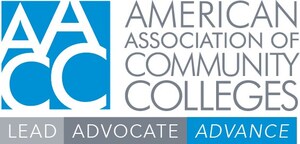AACC, AASCU, And APLU Announce Post-Collegiate Outcomes Initiative
WASHINGTON, Sept. 15, 2014 /PRNewswire-USNewswire/ -- The American Association of Community Colleges (AACC), in partnership with the Association of Public and Land-grant Universities (APLU) and the American Association of State Colleges and Universities (AASCU), will collectively develop a strategic framework to guide discussion and the creation of measurement tools for reporting student outcomes after college completion. This Bill & Melinda Gates Foundation-funded initiative will create a framework that will enable colleges and universities, policymakers, and the public to better understand and talk about post-collegiate outcomes in areas such as economic well-being, ongoing personal development, and social and civic engagement. The development of a framework is an important first step toward the creation of metrics and data elements institutions may be able to report on in the future.
"Most post-collegiate outcome studies have focused solely on areas where data are more readily available, such as economic success metrics related to employment and wages. These outcomes are important, but they are just one part of how we should measure success," APLU President Peter McPherson said. "This comprehensive framework will also tell us how a college education enhances a person's capacity to continue learning and increases their involvement within community organizations and charities."
In order to move toward a more effective use of post-collegiate outcomes in higher education policy and accountability, the initiative proposes three primary goals:
1) Develop a broad conceptual model to provide a better understanding of the appropriate use of measures for different purposes.
2) Define an initial set of post-collegiate outcome metrics that colleges and universities can report with currently available data.
3) Develop a policy framework and implementation plan to help colleges get better data and more effectively use post-collegiate outcome measures.
Two working groups have been convened to create the framework and guide the policy and implementation recommendations.
Under the guidance of leaders from diverse higher education institutions, state systems, and national data and advocacy groups, the initiative will define a conceptual framework to better describe and measure the outcomes of students after they leave a postsecondary institution. The goal of the conceptual framework will be to reach agreement on the core post-collegiate outcomes important to higher education, and to provide a basic structure for comparisons without losing the important differences between institutions.
"A conceptual framework, while an important beginning, is insufficient," said Walter Bumphus, president and CEO of AACC. "In order to move toward a more effective use of post-collegiate outcomes, this initiative will need to define an initial set of post-collegiate outcomes metrics that can be currently reported with available data."
Finally, the working groups will develop a policy framework and implementation plan aimed at increasing all institutions' ability to access, report and analyze workforce outcome data for accountability and program improvement.
"This initiative is an important step in public higher education's ongoing efforts to be accountable in the area of student outcomes," said AASCU President Muriel A. Howard. "Policy makers and the public need better information in order to understand how the collegiate experience at our institutions affects students' professional and personal lives after graduation."
The working groups will meet during the early summer to draft the framework and guidelines, which will then be summarized in one or more white papers scheduled to be released by the end of the year. In January, results of the initiative will be presented at an event in Washington, DC.
As the voice of the nation's community colleges, the American Association of Community Colleges (AACC), delivers educational and economic opportunity for 13 million diverse students in search of the American Dream. Uniquely dedicated to access and success for all students, AACC's nearly 1,200 member colleges provide an on-ramp to degree attainment, skilled careers and family-supporting wages. Located in Washington, D.C., AACC advocates for these not-for-profit, public-serving institutions to ensure they have the resources and support they need to deliver on the mission of increasing economic mobility for all.
AASCU is a Washington-based higher education association of more than 400 public colleges, universities and systems whose members share a learning- and teaching-centered culture, a historic commitment to underserved student populations, and a dedication to research and creativity that advances their regions' economic progress and cultural development.
The Association of Public and Land-grant Universities (APLU) is a research, policy, and advocacy organization representing 235 public research universities, land-grant institutions, state university systems, and affiliated organizations. Founded in 1887, APLU is North America's oldest higher education association with member institutions in all 50 U.S. states, the District of Columbia, four U.S. territories, Canada, and Mexico. Annually, APLU member campuses enroll 4.7 million undergraduates and 1.3 million graduate students, award 1.1 million degrees, employ 1.3 million faculty and staff, and conduct $41 billion in university-based research.
SOURCE American Association of Community Colleges
WANT YOUR COMPANY'S NEWS FEATURED ON PRNEWSWIRE.COM?
Newsrooms &
Influencers
Digital Media
Outlets
Journalists
Opted In




Share this article